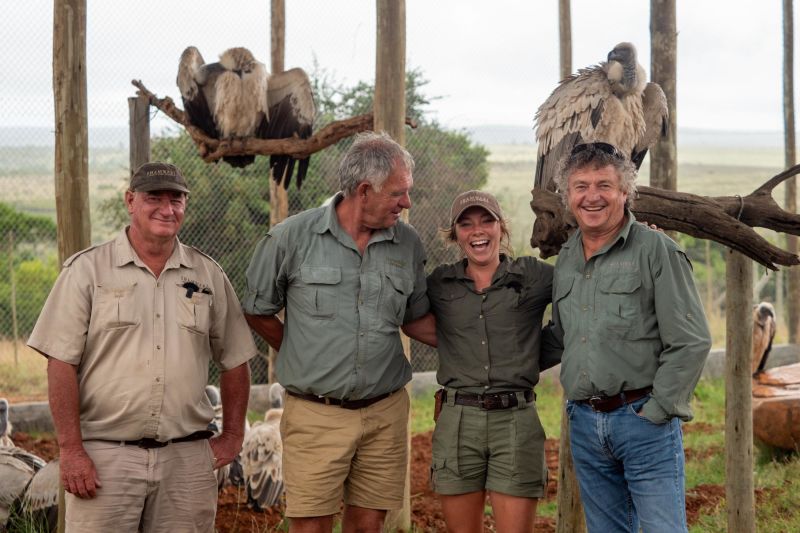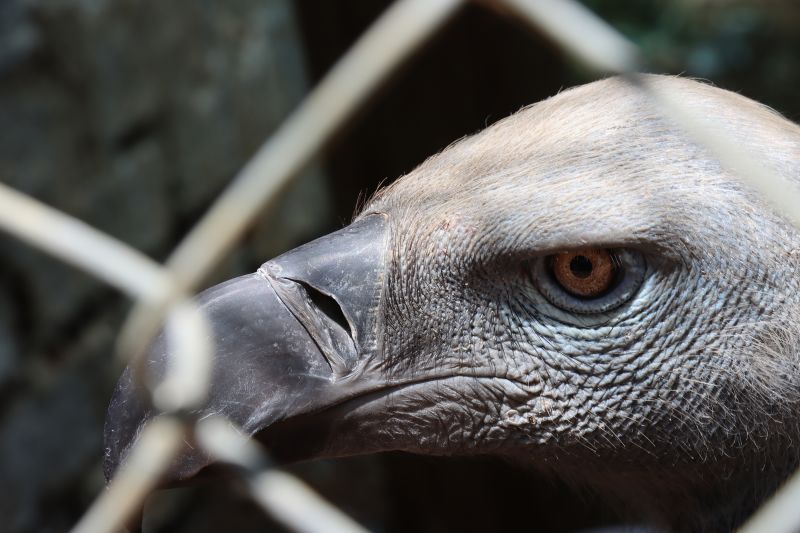
The Majestic Vultures: Guardians of the Ecosystem

Explore the fascinating world of vultures and their critical role in maintaining ecological balance. Discover the efforts of conservationists to protect these misunderstood creatures and ensure their survival in the wild.
Unveiling the Truth About Vultures
Vultures, often associated with death and decay, are nature's unsung heroes. Contrary to popular belief, these scavenger birds play a vital role in the ecosystem as nature's recyclers. Conservationists advocate for the protection of vultures, emphasizing their importance in maintaining ecological balance.
An African White-backed vulture (closest to camera) at the VulPro rehabilitation center near Pretoria, South Africa. The center has cared for over 1,600 vultures during its operation, which involves rehabilitation, captive breeding and rewilding.
Sub-Saharan Africa is home to four critically endangered vulture species, prompting organizations like VulPro to step in and safeguard these majestic birds. Recently, VulPro collaborated with a private game reserve to relocate a group of vultures, marking a significant effort to bolster vulture populations in the wild.
VulPro and Shamwari Private Game Reserve collaborated with a number of organizations, including logistics firm DHL, to facilitate January's vulture relocation.
The Stigma Surrounding Vultures
Despite their crucial role in preventing disease outbreaks, vultures face unwarranted persecution and hunting in certain regions. The decline in vulture populations poses a threat to the environment, leading to potential health risks for both animals and humans. Efforts by organizations like VulPro aim to combat misconceptions and protect vultures from harm.
Vultures carry a bad reputation, but have an essential role in many ecosystems, preventing the transmission of disease to other animals through their consumption of carcasses.
Vultures, equipped with unique adaptations for scavenging, are essential for maintaining a healthy ecosystem. Their efficient digestive systems and scavenging habits help prevent the spread of harmful pathogens, highlighting the significance of vultures in nature's intricate web of life.
Conservation Challenges and Hope for the Future
Conservationists face numerous challenges in protecting vultures, from poisoning incidents to habitat loss. Organizations like VulPro are actively engaged in rehabilitation and breeding programs to ensure the survival of vulture species. By raising awareness and collaborating with local communities, these initiatives seek to secure a future where vultures thrive in their natural habitats.
A vulture is released at the private game reserve, over 1,000 kilometers from the VulPro rehabilitation center. The relocation is part of efforts to establish new vulture populations over a wider area of South Africa, as well as reducing the risk of an infectious disease event in high-density environments like rehabilitation centers.
The relocation of vultures to safe environments, such as private game reserves, offers hope for establishing sustainable vulture populations. Through tracking and monitoring efforts, conservationists aim to track the movements of vultures and safeguard them from potential threats. The collective efforts of conservation groups and wildlife reserves signal a promising future for these remarkable birds.










